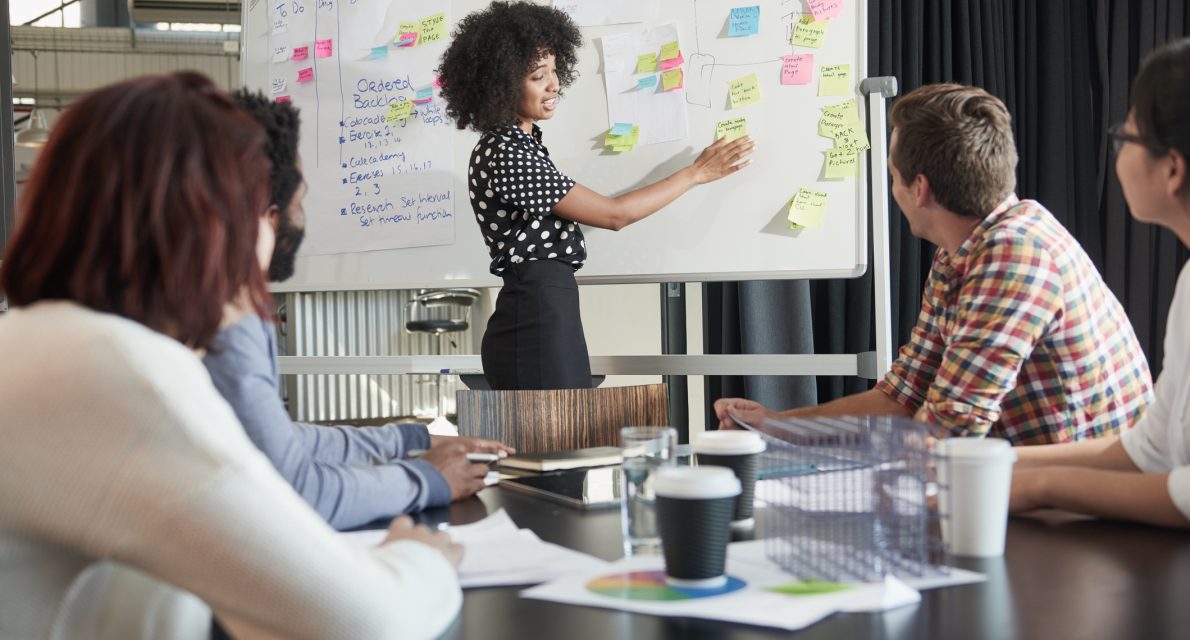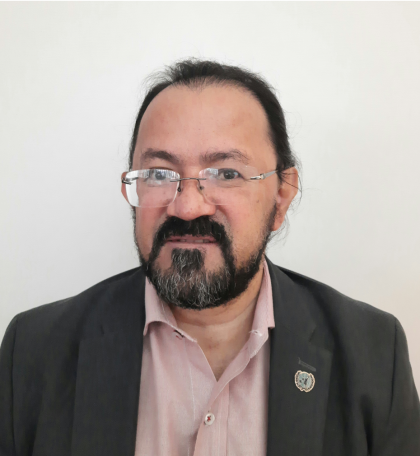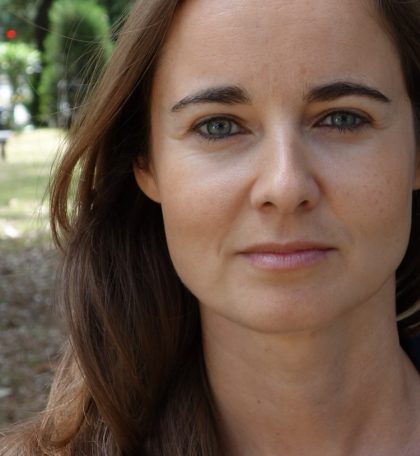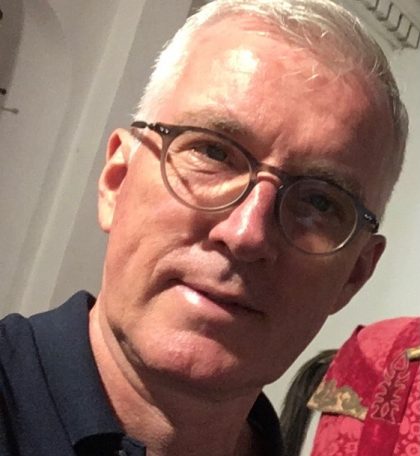Moving towards a sustainable and circular economy: Bioeconomy Strategy Development

Timing: November 17, 4-7 p.m. (CET)
Contents
Output
Organizers
UN FAO
The Food and Agriculture Organization of the United Nations (FAO) leads the German (BMEL) funded project “Towards Sustainable Bioeconomy Guidelines”, upon recommendation of 62 Ministers of Agriculture at the Global Forum for Food and Agriculture in 2015. The project guides countries in the development of sustainable and circular bioeconomy strategies, action plans and programs, in line with the SDGs and the Paris agreement, namely Uruguay and Namibia.
ECLAC
The United Nations Economic Commission for Latin America and the Caribbean, ECLAC, co-organized two regional bioeconomy policy-dialogues (2015, 2018) before GBS2015 and GBS2018, produces publications on bioeconomy in Latin America, supports the Costa Rican National Bioeconomy Strategy 2020 – 2030, framed in the cooperation with the German Federal Ministry for Economic Cooperation and Development (BMZ) – German Corporation for International Cooperation (GIZ) and is currently providing technical assistance to Colombia, Costa Rica and Uruguay in the design of bioeconomy-related post-COVID-19 recovery plans.
Collaborating Partners:
The International Sustainable Bioeconomy Working Group (ISBWG) is a global Community of Practice and a South-South and Triangular Cooperation Platform, established by the FAO. The Group comprises a diverse pool of experts from 35 institutions from all continents and acts as advisory group to the FAO Bioeconomy project. Its purpose is to foster knowledge exchange on lessons learned, good practices, monitoring and policy tools related to the bioeconomy.
At the Canadian Forest Service, Natural Resources Canada and at Agriculture and Agri-Food Canada there are teams of economists, engineers, and policy analysts working to establish a solid foundation for policy decisions, including bioenergy and biorefining pathways in the forest sector and policies related to industrial bioeconomy applications of agricultural production.
The Fraunhofer IGB develops and optimizes processes, plants, products, and technologies in the fields of health, chemistry and the process industry as well as environment and energy. The ScienceCampus Halle – Plant-Based Bioeconomy (WCH) concentrates on primary plant production, biotechnology of plant-based products as well as social and economic impacts of innovations in the bioeconomy. The Fraunhofer Institute IMW located in Leipzig can look back over ten years of applied, socio-technical and socio-economic research and experience at the Leipzig location.
Chairs

Adrián Rodriguez
Moderator

Anne Bogdanski
Thematic focus
The bioeconomy has great potential to transform our societies towards greener, safer and more equitable societies. But concrete efforts are needed to develop the bioeconomy in a sustainable and circular way. Its cross-cutting nature – in terms of the actors and sectors involved – poses additional challenges.
A set of Aspirational Principles and Criteria for a Sustainable Bioeconomy were established by the ISBWG to ensure bioeconomy strategies embed all aspects of sustainability. The principles and criteria cover social, economic, environmental and governance aspects of sustainability and provide a reference list of common goals for a sustainable and circular bioeconomy.
The goal of this workshop is to promote knowledge exchange between various countries about how to enhance synergies and cope with trade-offs during the development and implementation of bioeconomy strategies, particularly when it comes to integrating different aspects of sustainability. To achieve this objective, we will discuss country cases based on existing or forthcoming bioeconomy strategies, using the Aspirational Principles and Criteria as guidance.
Agenda
All times refer to CET. Current time:
16:00 – 16:15: Introduction: Sustainable, Circular BioeconomyStrategies for Sustainable Development.
Chair: Karel Callens, Food and Agriculture Organization of the United Nations (FAO)
Co-Chair: Adrián Rodríguez, United Nations Economic Commission for Latin America and the Caribbean (ECLAC)
Moderator: Anne Bogdanski, Food and Agriculture Organization of the United Nations (FAO)
Co-Moderator: María Silva, Food and Agriculture Organization of the United Nations (FAO)
16:15 – 16:30: Key-note speech: New German Bioeconomy Strategy – From theory to practice in sustainable bioeconomy strategy development.
Dr. Hans-Jürgen Froese, Ministry for Food and Agriculture (BMEL), Germany
16:30 – 16:40: Keynote speech: A circular bioeconomy for sustainable food systems transformation, contributing to a green recovery from COVID-19.
Dr. Eduardo Mansur, Food and Agriculture Organization of the United Nations (FAO)
16:40 – 16:50: Introduction to the four parallel breakout groups: Lessons learned on mainstreaming the multiple dimensions of sustainability into circular bioeconomy strategies.
Speaker: María Silva, Food and Agriculture Organization of the United Nations (FAO)
16:50 – 18:00: Parallel break out groups
18:00 – 18:15: Break
18:15 – 18:45: Plenary discussion: How can bioeconomy policies help to enhance synergies and address trade-offs among the dimensions of sustainability?
One panelist from each breakout group
18:20 – 18:30: Closure
Chair: Karel Callens, Food and Agriculture Organization of the United Nations (FAO)
Co-Chair: Adrián Rodríguez, United Nations Economic Commission for Latin America and the Caribbean (ECLAC)
Parallel working groups
We will have 4 parallel working groups, each divided into a dimension of sustainability (economic, social, environmental and governance) and how they are reflected in bioeconomy strategies, while simultaneously emphasizing the synergies and trade-offs between them:
Governance: the role of stakeholder participation and governance mechanisms in strategy development and how they are related to addressing sustainability.
Social: the importance of food security and nutrition in the context of human and ecosystem health. Unhealthy diets lead to malnutrition, deficiencies as well obesity and non-communicable diseases.
Environmental: the role of climate action, the sustainable use and conservation of biodiversity and environmental protection within a circular bioeconomy.
Economic: the role of technological, market and human-resource context in promoting structural, sustainable, economic change.
The following question will be used to guide the plenary discussion: How can bioeconomy policies help to enhance synergies and address trade-offs among the dimensions of sustainability?
Participants will be asked to highlight some specific synergies and trade-offs between sustainability objectives in relation to what they heard in their break-out group.
They will be asked to especially highlight those actions, measures and policy tools that can address several sustainability dimensions at the same time, enhancing synergies and reducing trade-offs between them.
Within each parallel working group:
Guiding principles and criteria:
- Principle 6. Responsible and effective governance mechanisms should underpin sustainable bioeconomy
- Criterion 6.1. Policies, regulations and institutional structures relevant to bioeconomy sectors are adequately harmonized
- Criterion 6.2. Inclusive consultation processes and engagement of all relevant sectors of society are adequate and based on transparent sharing of information
- Criterion 6.3. Appropriate risk assessment and management, monitoring and accountability systems are put in place and implemented
- Principle 10. Sustainable bioeconomy should promote cooperation, collaboration and sharing between interested and concerned stakeholders in all relevant domains and at all relevant levels
- Criterion 10.1. Cooperation, collaboration and sharing of resources, skills and technologies are enhanced when and where appropriate
Facilitation:
Anne-Helene Mathey from Canadian Forest Service (CFS)/Natural Resources Canada (NRCAN); Erika Van Neste from Agriculture and Agri-Food Canada
Panelists:
Jeff Waring, Canadian Forest Service; Walter Oyhantçabal; Ministry of Livestock, Agriculture and Fisheries, Uruguay; Tuula Packalen, Ministry of Agriculture and Forestry, Finland
Guiding principles and criteria:
- Principle 1. Sustainable bioeconomy development should support food security and nutrition at all levels
- Criterion 1.1. Food security and nutrition are supported
- Criterion 1.2. Sustainable intensification of biomass production is promoted
- Criterion 1.3. Adequate land rights and rights to other natural resources are guaranteed
- Criterion 1.4. Food safety, disease prevention and human health are ensured
- Principle 4. Sustainable bioeconomy should make communities healthier, more sustainable, and harness social and ecosystem resilience
- Criterion 4.1. The sustainability of urban centres is enhanced
- Criterion 4.2. Resilience of biomass producers, rural communities and ecosystems is developed and/or strengthened
- Principle 9. Sustainable bioeconomy should address societal needs and encourage sustainable consumption
- Criterion 9.1. Consumption patterns of bioeconomy goods match sustainable supply levels of biomass
- Criterion 9.2. Demand-side and supply-side market mechanisms and policy coherence between supply and demand of food and non-food goods are enhanced
Facilitation:
Anne Bogdanski, FAO; Karel Callens, FAO
Panelists:
Julius Ecuru, International Centre of Insect Physiology and Ecology (ICIPE), BioInnovate representative for the East African Strategy; Ciaran Mangan, European Commission; Rafael Anta, Interamerican Development Bank; Fabio Fava, University of Bologna, Italy
Guiding principles and criteria:
- Principle 2. Sustainable bioeconomy should ensure that natural resources are conserved, protected and enhanced
- Criterion 2.1. Biodiversity conservation is ensured
- Criterion 2.2. Climate change mitigation and adaptation are pursued
- Criterion 2.3. Water quality and quantity are maintained, and, in as much as possible, enhanced
- Criterion 2.4. The degradation of land, soil, forests and marine environments is prevented, stopped or reversed
- Principle 5. Sustainable bioeconomy should rely on improved efficiency in the use of resources and biomass
- Criterion 5.1. Resource efficiency, waste prevention and waste re-use along the whole bioeconomy value chain is improved
- Criterion 5.2. Food loss and waste is minimized and, when unavoidable, its biomass is reused or recycled
Facilitation:
Adrián Rodríguez, ECLAC; Marta Gómez San Juan, FAO
Panelists:
Federico Torres, Ministry of Science, Technology and Telecommunications, Costa Rica, and Bioeconomy Inter-ministerial Commitee; Timothy Ong, Agensi Inovasi Malaysia (AIM); Hugo De-Vries, National Research Institute for Agriculture, Food and Environment (INRAE), France
Guiding principles and criteria:
- Principle 3. Sustainable bioeconomy should support competitive and inclusive economic growth
- Criterion 3.1. Economic development is fostered
- Criterion 3.2. Inclusive economic growth is strengthened
- Criterion 3.3. Resilience of the rural and urban economy is enhanced
- Principle 7. Sustainable bioeconomy should make good use of existing relevant knowledge and proven sound technologies and good practices, and, where appropriate, promote research and innovation
- Criterion 7.1. Existing knowledge is adequately valued and proven sound technologies are fostered
- Criterion 7.2. Knowledge generation and innovation are promoted
- Principle 8. Sustainable bioeconomy should use and promote sustainable trade and market practices
- Criterion 8.1. Local economies are not constrained but rather expanded through the trade of raw and processed biomass, and related technologies
Facilitation:
Henrik Beermann, Fraunhofer Institutes Germany; María Silva, FAO
Panelists:
Gerd Unkelbach, Fraunhofer Society – Fraunhofer Center for Chemical-Biotechnological Processes CBP; Paulus Mungeyi, National Commission for Research, Science and Technology, Namibia; Tatiana Schor, Secretariat of Science, Technology and Innovation, Amazonas State, Brazil; Sakarindr Bhumiratana, Biotec and National Science and Technology Development Agency, Thailand

